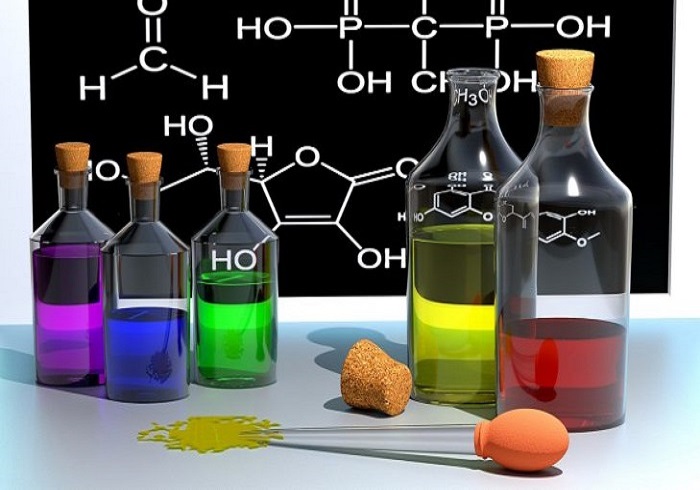The difference between laboratory and industrial chemicals

What are chemicals؟
Chemicals are substances that have fixed compounds and their properties do not change. These materials are raw and they are used as precursors in various industries. In general, if we want to look at the nature of the material, it is difficult to find a material whose purity percentage can definitely be declared as 100. Knowing the presence of impurities in purified chemicals, although in a very, very small way, this impurity is still present in the chemical substance. The factor that differentiates the grades of chemicals is actually the presence of this amount of impurities.
As the amount of pollution in the materials increases, these impurities can affect some chemical reactions and enter the reaction as competitors, or it can speed up or affect the direction of the reaction. On the other hand, the presence of awkward isomers or other forms of the same substance can also play the role of a pollutant and reduce the percentage of purity of the substance.
Application of all kinds of chemicals
All chemicals play a significant role in the whole human life. The application of all kinds of chemicals in the industry is as follows:
*Pharmaceutical industries
*Ceramic tile industry
*Plating and casting industries
*Rubber, plastic and polymer industries
*Industries for the production of health and cosmetics
*Industry producing paint, resin and industrial coatings
According to our uses of these materials, they are divided into two general categories: laboratory materials and industrial materials in general.
What are industrial chemicals؟
Industrial chemicals are chemicals that, due to the non-application of purification processes, have a higher percentage of impurity and naturally a lower percentage of purity than grade chemicals They are laboratory and are mostly suitable for industrial use.
Classification of industrial chemicals is done based on the following criteria:
* The toxicity of the substance
*Disability-explosive capability
*The degree of being dangerous to the environment
*Chemical reactivity for the environment
*Safety of working with chemicals
*Possibility of gas or vapors
*The nature of corrosiveness
*Physical and chemical properties
What are laboratory chemicals؟
In laboratories, the sensitivity in the purity of the material is very high and the material must be completely pure. Their purity and impurity can be very important and effective in conducting tests.Laboratory chemicals have a very high purity percentage. For this reason, they have a relatively higher price compared to industrial materials, and in some cases, chemicals are used in various research experiments and processes. Laboratory chemicals are being used in genetic science, parasitology and.
The difference between laboratory and industrial chemicals:
*In general, laboratory and industrial chemicals have the same formulation, and the main point of difference between laboratory and industrial chemicals is the percentage of substances in these compounds.
*Laboratory chemicals have less impurities than industrial chemicals.
*The price of laboratory chemicals is higher than industrial chemicals (due to higher purity).
*In laboratory materials purity is more important than in industrial uses.
*Laboratory chemicals have much higher diversity than industrial chemicals.










